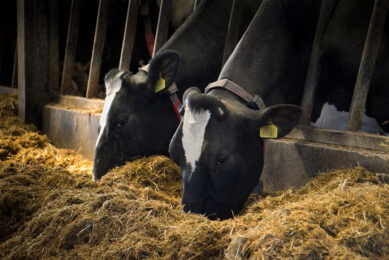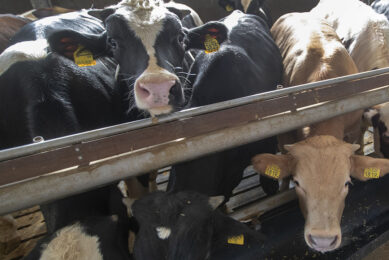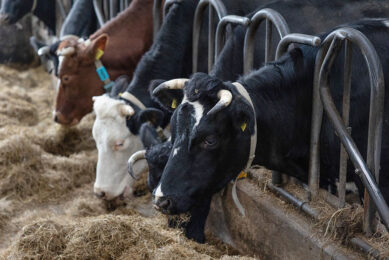Novus achieves record year of HMTBa production
“2011 was a record year for global Novus production of HMTBa due to the growing demand. We have experienced growth in all of the animal segments globally, expanding beyond the initial poultry markets, which is a testament to the versatility of this molecule,” commented Dan Meagher, Global Animal Nutrition Solutions President at Novus.
A boost in demand for HMTBa, in both liquid and dry forms, is a result of targeted market expansion beyond poultry into swine diet formulations, ruminant rations in dairy and beef applications, as well as the ever-growing needs of the aquaculture segment.
The growth in demand for the HMTBa molecule is nearly half of the global methionine market, Novus International said.
As corn and soy feed ingredients s have experienced increased price volatility, the cost savings associated with maximizing the use of methionine activity in animals’ diets have increased. Nutrition experts seeking to improve feed efficiency and reduce feed cost routinely turn to HMTBa as their solution.
“We are working with our customers to supply customized solutions and provide world class service. Our branded methionine sources have proven their benefits in livestock and poultry, and companion animal diets globally,” Meagher said.
Since the first sale of Alimet in 1979, researchers have sought to understand the total value of HMTBa. The knowledge gained over the past three decades in the area of bioavailability and strength of the HMTBa molecule in this area have contributed to the success of the Novus-branded methionine solutions.
Ruminant diets
The molecule has been mainly used in monogastric diets, but the expansion to ruminant applications has shown even greater value when supplemented at proper inclusion rates.
“The rumen bypass value of HMTBa can’t be overlooked when formulating diets for the dairy cow and supplementing beef cattle on pasture,” reports Mercedes Vazquez-Añon, Senior Research Director at Novus.
“While DL-Methinonine is degraded rapidly in the rumen, providing little to no benefit to the animal, HMTBa has a ruminal escape value of approximately 40%. This has been verified by numerous published, peer-reviewed papers since 1998.
“The ruminal escape of HMTBa means the molecule can be absorbed by diffusion along the digestive tract. Studies have shown that HMTBa benefits are seen in dairy cows by improving production of milk components, and in beef cattle with more weight per calf and improved reproduction.”
Aquaculture use
Benefits extend to aquaculture applications as well. HMTBa has helped nutritionists improve diets by using more sophisticated amino acid formulation.
“Just four years ago Novus entered the aquaculture market, and we’re already excelling in this sector,” reports Francisco Gomes, Executive Manager of the Novus Aquaculture Business Unit. “We expect to grow with this segment through targeted nutrition and health applications.”











